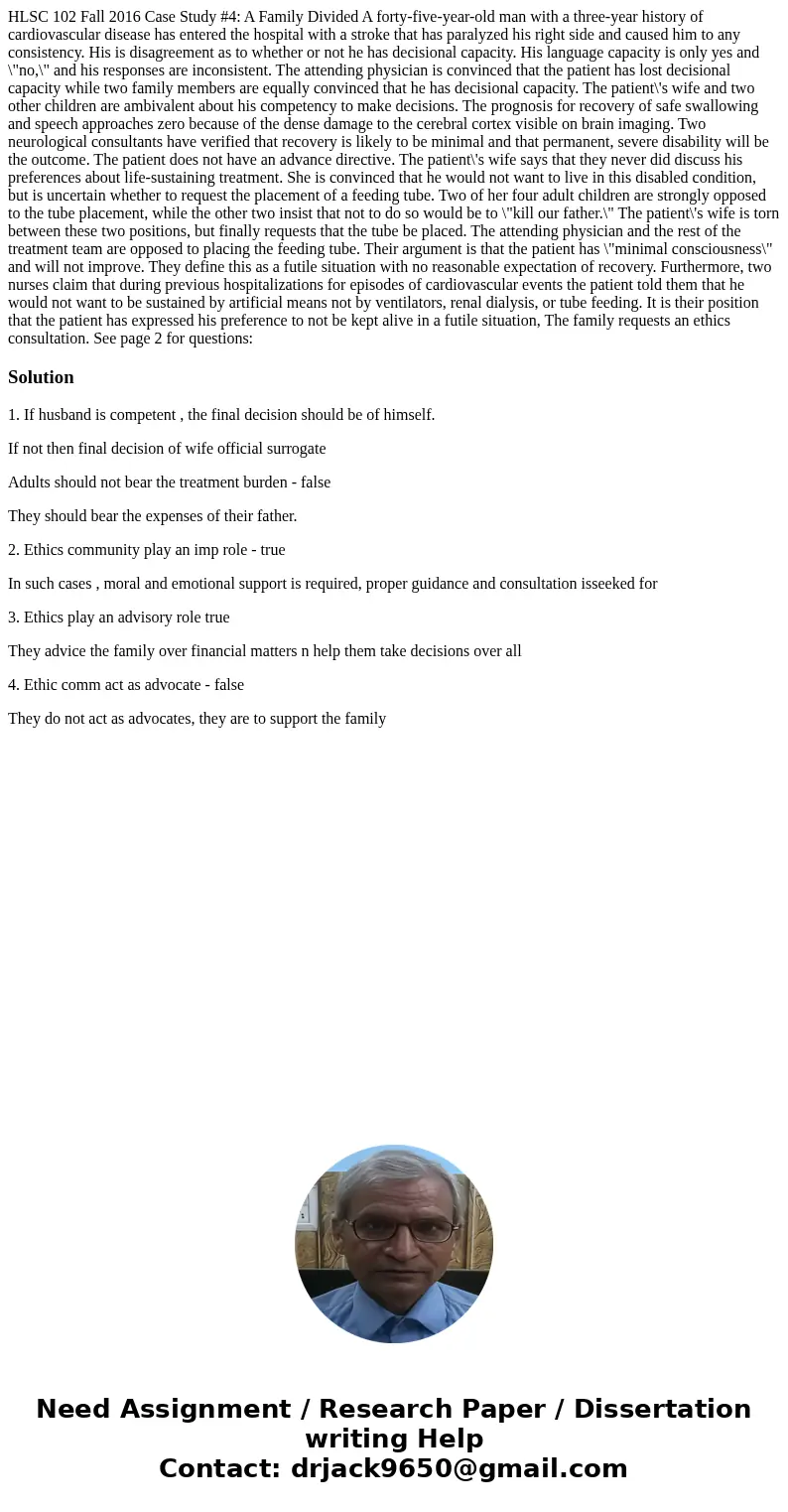HLSC 102 Fall 2016 Case Study 4 A Family Divided A fortyfive
HLSC 102 Fall 2016 Case Study #4: A Family Divided A forty-five-year-old man with a three-year history of cardiovascular disease has entered the hospital with a stroke that has paralyzed his right side and caused him to any consistency. His is disagreement as to whether or not he has decisional capacity. His language capacity is only yes and \"no,\" and his responses are inconsistent. The attending physician is convinced that the patient has lost decisional capacity while two family members are equally convinced that he has decisional capacity. The patient\'s wife and two other children are ambivalent about his competency to make decisions. The prognosis for recovery of safe swallowing and speech approaches zero because of the dense damage to the cerebral cortex visible on brain imaging. Two neurological consultants have verified that recovery is likely to be minimal and that permanent, severe disability will be the outcome. The patient does not have an advance directive. The patient\'s wife says that they never did discuss his preferences about life-sustaining treatment. She is convinced that he would not want to live in this disabled condition, but is uncertain whether to request the placement of a feeding tube. Two of her four adult children are strongly opposed to the tube placement, while the other two insist that not to do so would be to \"kill our father.\" The patient\'s wife is torn between these two positions, but finally requests that the tube be placed. The attending physician and the rest of the treatment team are opposed to placing the feeding tube. Their argument is that the patient has \"minimal consciousness\" and will not improve. They define this as a futile situation with no reasonable expectation of recovery. Furthermore, two nurses claim that during previous hospitalizations for episodes of cardiovascular events the patient told them that he would not want to be sustained by artificial means not by ventilators, renal dialysis, or tube feeding. It is their position that the patient has expressed his preference to not be kept alive in a futile situation, The family requests an ethics consultation. See page 2 for questions: 
Solution
1. If husband is competent , the final decision should be of himself.
If not then final decision of wife official surrogate
Adults should not bear the treatment burden - false
They should bear the expenses of their father.
2. Ethics community play an imp role - true
In such cases , moral and emotional support is required, proper guidance and consultation isseeked for
3. Ethics play an advisory role true
They advice the family over financial matters n help them take decisions over all
4. Ethic comm act as advocate - false
They do not act as advocates, they are to support the family

 Homework Sourse
Homework Sourse